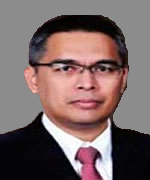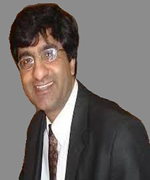Satellite Conference on Computational Fluid Dynamics (CFD2021)
Introduction
Computational Fluid Dynamics Conference provide a platform for participants to present the most recent discoveries in Fluid Dynamics field, and to identify potential collaboration among local and international researchers. It also provides further strengthens cooperative relations between international and regional research institutions. Therefore, the mathematical model and the mathematical formulation in the fluid flow and heat transfer should play an important role in the field of physics, mathematics, biology, as well as biomedical engineering, mechanical engineering, chemical engineering, biotechnology and etc.
Submission
All submissions must represent original and unpublished work that is not currently under review. Each paper will be reviewed by at least three (3) PC members. Manuscripts are assessed based on originality, significance, interest, correctness, clarity, and relevance to the broader community. At least one author of each accepted paper is expected to register for the conference. Full papers are expected to publish the latest progress of Fluid Dynamics with the usage of Applied Mathematics.
IMPORTANT NOTES
- Authors are free to use any template at the point of submission to CFD2021. We accept both Microsoft Word®️ and/or LaTeX®️ format. However, authors are required to follow the journal's format after the article is accepted.
- However, authors are required to select one of the journals, as listed under the publications of CFD2021. Therefore, please check the Scope and the Author Guidelines of the journals, to prepare an article.
Scope
The original research and review articles relevant to the scope of this CFD2021 will be most welcomed, but are not limited to:
- Mathematical model
- Numerical method
- Analytical method
- Heat transfer
- Mass transfer
- Non-Newtonian fluids
- Micropolar fluid
- Nanofluid
- Hybrid nanofluid
- Superfluids
- Marangoni and Bénard–Marangoni convection
- Double diffusive convection
- Bioconvection
- Mixed convection
- Engineering flows
- Biological flows
- Compressible flows
- Geophysical flows
- Microscale flows
- Multiphase flows
- Particle -laden flows
- Reactive flows
- Rotating flows
However, the research paper that fit within the aims and scope of the journal offered by CFD2021 are also being invited.
Publications
The CFD2021 offers you the possibility to publish your research work in form of journal publication with indexing and abstracting in Scopus®️ and/or JCR indexed journals. The full list of journals can be viewed at: https://einspem.upm.edu.my/icrem9/pages/publications.php
Please regularly visit this website to view our updated list.
Plenary Speakers

|
PROFESSOR DR. ISHAK HASHIM National University of Malaysia |
Ishak Hashim was born in Melaka, Malaysia, in 1969. He joined Universiti Kebangsaan Malaysia (UKM) as a Mathematics Tutor in March 1993. Later he obtained the degree of Master of Science in Mathematics of Nonlinear Models from Heriot-Watt University, UK, in November 1994. His degree of Doctor of Philosophy (Mathematics) was obtained in March 1998 from the University of Strathclyde, UK, under the supervision of Professor S.K. Wilson in Fluid Mechanics. He held the post of Coordinator of Bioinformatics Centre at the Institute of System Biology (INBIOSIS), UKM, from 1st September 2005 until 1st May 2008. He acted as the Head of Department of UKM’s Mathematics Department for the period of 15th March 2009- 14th March 2012. He was the Chairman of UKM’s School of Mathematics Sciences from Jan 2014- Jan 2019. Ishak has been a Professor at the School of Mathematics Sciences, Faculty of Science and Technology, UKM since August 2008. His areas of interest include flow instability, CFD and approximate methods. Ishak was the first and only Malaysian Mathematician to be listed in The World’ Most Influential Scientific Minds: 2014 for Mathematics category by Thomson Reuters, making him the top 1% most cited Mathematics researcher in the world. |
|
|
|
|

|
PROFESSOR DR. MOHAMMAD MEHDI RASHIDI Tongji University, Shanghai, China |
|
Mohammad Mehdi Rashidi is born in Hamedan, Iran in 1972. He received his B.Sc. degree in Bu-Ali Sina University, Hamedan, Iran in 1995. He also received his M.Sc. and Ph.D degrees from Tarbiat Modares University, Tehran, Iran in 1997 and 2002, respectively. His research focuses on Heat and Mass Transfer, Wind Tunnel, Thermodynamics, Computational Fluid Dynamics (CFD), Nonlinear Analysis, Engineering Mathematics, Exergy and Second Law Analysis, Numerical and Experimental Investigations of Nanofluids Flow for Increasing Heat Transfer and Study of Magnetohydrodynamic Viscous Flow. He is a professor of Mechanical Engineering and worrks at Tongji University, Shanghai, China. He has published two books: Advanced Engineering Mathematics with Applied Examples of MATHEMATICA Software (2007) (320 pages) (in Persian), and Mathematical Modelling of Nonlinear Flows of Micropolar Fluids (Germany, Lambert Academic Press, 2011). His works have been published in the Plos One, Energy, Computers and Fluids, Communications in Nonlinear Science and Numerical Simulation and several other peer-reviewed international journals. He has published over 300 journal articles and 47 conference papers. He was an invited professor in Génie Mécanique, Université de Sherbrooke, Sherbrooke, QC, Canada J1K 2R (From Sep 2010-Feb 2012), Universite Paris Ouest, France (For Sep 2011) and University of the Witwatersrand, Johannesburg, South Africa (For Aug 2012). He is the editor of International Journals, some of them are as follow: Associate Editor of Journal of Applied Fluid Mechanics (ISI), Associate Editor of Journal of King Saud University-Engineering Sciences (Elsevier), Caspian Journal of Applied Sciences Research (ISI), Scientific Research and Essays (indexed in SCOPUS), Walailak Journal of Science and Technology (indexed in SCOPUS) and Modern Applied Science (indexed in SCOPUS). Professor Rashidi is a reviewer of several journals (over 300 refereed journals) such as Plos One, International Journal of Heat and Mass Transfer, Computers and Fluids, Energy, International journal of thermal science, Mathematical and Computer Modelling, Applied Mathematical Modelling, Computers and Mathematics with Applications, etc. |
|
PROFESSOR DR. HABIL SHAMSUL QAMAR |
PROFESSOR DR. HABIL SHAMSUL QAMAR COMSATS University Islamabad |
| Shamsul Qamar was born in 1972 in the small village Kohi-Bormol of tehsil Katlang, district Mardan, Khyber Pakhtunkhwa. His mother tongue is Pashto. He is eldest from his 2 brothers and 4 sisters. He is married and has 4 children. He currently lives in Islamabad and works as a Professor of Mathematics at the COMSATS University Islamabad. He got his basic education up to graduation level in District Mardan, KPK. He did his MSc and MPhil (gold medalist) degrees in mathematics from Quaid-I-Azam University (QAU) Islamabad in 1994 and 1996, respectively. In 2001, he moved to Germany and got a Ph.D. degree in mathematics from Otto-von-Guericke University Magdeburg in 2003. In addition, he got a highly prestigious “Habilitation Degree” from the same university in Germany after four years of postdoctoral teaching and research. He is currently working as a professor at COMSATS Institute of Information Technology Islamabad. He is a renowned scientist in the field of computational fluid dynamics and process engineering. He is actively engaged in research collaborations with top German institutions namely, Max Planck Institute Magdeburg, WIAS Berlin, TU Kaiserslautern, and Otto-von-Guericke University Magdeburg. He has above 100 international research publications in reputed ISI Journals. His impact factor is above 250. Moreover, 19 Ph.D. students have completed their degrees under his supervision and Ph.D. studies of 10 more students are in progress. Moreover, he has presented his work in about 50 international conferences all over the world. He got several awards and fellowships from different foreign institutions. He is a regular reviewer of famous international scientific Journals. |
|
|
|
|








